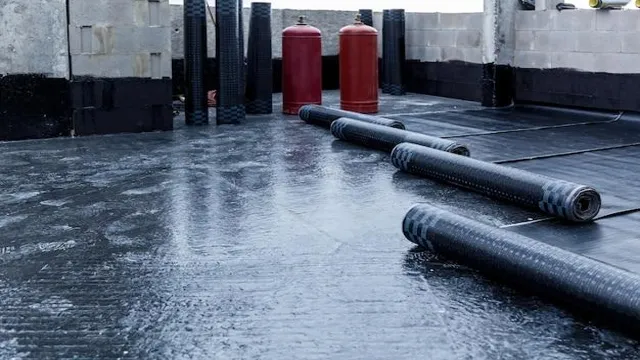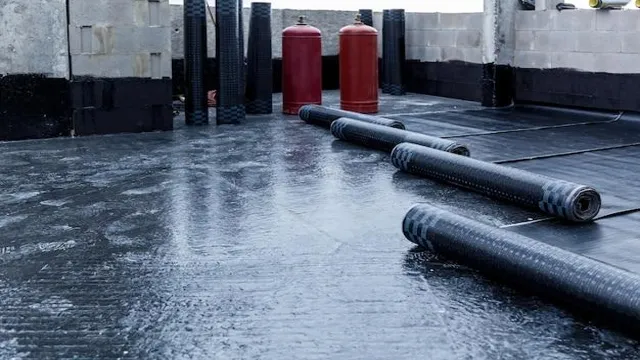Have you ever noticed water dripping from your AC vent? It can be a perplexing sight, leaving you wondering what could be causing it. Is there a leak in your roof that’s allowing water to seep in? Or is it something more complicated related to your air conditioning system? The good news is, there are common reasons why your AC vent might be leaking water, and we’re here to help you figure it out. In this blog, we’ll explain what could be causing the leak and what steps you can take to fix it.
So, sit back, relax, and let’s dive into this bursty topic.
Identifying the Problem
If you’ve noticed water leaking from your AC vent during rainstorms, you’re not alone. This is a common problem that can be caused by a number of factors. One potential culprit is a clogged condensate drain line, which can cause water to back up and overflow into the ductwork and out through the vents.
Poor insulation or inadequate sealing around the vent can also allow water to leak in from the outside. Another possibility is that your air conditioning system is improperly installed or has developed a defect, such as a crack in the condensate pan or a faulty evaporator coil. Whatever the cause, it’s important to address the issue promptly to prevent water damage and maintain good indoor air quality.
A professional HVAC technician can help diagnose and fix the problem, ensuring that your AC system is working safely and efficiently.
What Causes AC Vents to Leak Water?
When you notice water dripping out of your AC vents, it’s a sign that something is wrong. There can be a few different reasons why your AC vents are leaking water. One of the most common causes is a clogged air filter.
A dirty air filter can cause the evaporator coils to freeze, which leads to condensation buildup and ultimately, water leakage. Another reason could be a damaged drip pan or a blocked drain line. If the drip pan is cracked or corroded, it can allow water to leak through the vents.
A blocked drain line can cause water to backup and overflow, resulting in water leakage. It’s important to identify the source of the leak and address it promptly to avoid further damage to your AC unit. Regular maintenance and servicing can prevent most AC vent leaks and ensure the efficient functioning of your air conditioning system.

Signs of a Leaking AC Vent
If you notice unusual moisture around your AC vents, it may indicate a leaking AC vent. Other signs include mold or mildew growth in the vicinity of the vent and a musty odor emanating from the ducts. If you hear a hissing sound around the AC vents, it is also possible that air could be escaping due to a vent leak.
These signs may indicate an issue with the insulation around your AC vent or a problem with the ductwork. Promptly addressing a leaking AC vent is essential for preventing further damage and maintaining optimal indoor air quality. A professional HVAC technician can inspect and repair any leaks to ensure proper and efficient functioning of your AC system.
Fixing the Problem
If you’ve noticed water dripping from your AC vents when it rains, you probably have a problem with your condensate drain line. This is a common issue that can lead to water damage and mold growth if left unchecked. Luckily, fixing the problem is relatively simple.
The first step is to locate the condensate drain line, which is typically located near the outdoor unit. Check if there are any clogs or algae buildup that may be causing the line to back up. If so, use a wet-dry vacuum to suction out the blockage or flush the line with a mixture of water and vinegar.
Additionally, make sure the line is properly insulated to prevent condensation. Finally, consider installing a safety switch that will shut off the system if the drain line becomes clogged again in the future. By taking these steps, you can avoid costly repairs and keep your home comfortable and safe.
DIY Solutions for Leaking AC Vents
If you’re experiencing leaking AC vents in your home, don’t panic! There are DIY solutions to fix the problem and prevent further damage. One common cause of leaking vents is a clogged air filter. Simply replacing or cleaning the filter can improve airflow and prevent condensation buildup that can lead to leaks.
Another solution is to check for any cracks or gaps around the vents that may be allowing air to escape. Sealing these areas with weatherstripping or caulking can improve the efficiency of your AC unit and prevent leaks. Additionally, if you notice any mold or mildew around your vents, it’s important to clean it immediately to prevent the spread of harmful bacteria.
By taking these simple steps, you can easily fix your leaking AC vents and keep your home cool and comfortable all summer long.
When to Call in a Professional
If you’re facing a plumbing problem, knowing whether it’s necessary to call a professional or not can save you both time and money. For instance, if it’s a minor issue such as a clogged sink, you can try fixing it yourself by using a plunger or a drain snake. However, if it’s something more serious such as a burst pipe or a leaky faucet, it’s best to call in a professional plumber.
Attempting to fix these types of issues on your own can lead to further damage, which can be expensive to repair. Moreover, if you’re not familiar with plumbing systems, it’s easy to overlook underlying problems that require professional attention, leading to expensive repairs in the future. Remember that while minor plumbing issues can be quickly and temporary fixable, bigger issues need the hands of an expert plumber to be solved effectively.
Costs of Repairing a Leaking AC Vent
When it comes to fixing a leaking AC vent, the costs can vary depending on the severity of the problem. It’s not uncommon for homeowners to notice condensation or water dripping from their vents, indicating a leak. The first step is to identify the source of the leak, which could be due to a clogged condensate drain, a damaged duct, or even a faulty air handler.
Once the issue is identified, the cost to repair can range anywhere from a few hundred to several thousand dollars. Of course, preventative maintenance, such as regular cleaning and inspections, can help prevent these issues from occurring in the first place. Investing in a reliable HVAC technician can save homeowners both time and money in the long run.
Preventing Future Leaks
If you have an AC vent leaking water when it rains, it can be frustrating and potentially damaging to your home. The good news is, there are ways to prevent this from happening in the future. One of the first things you can do is ensure your AC unit is properly installed and sealed.
This means checking all connections and joints to ensure there are no gaps or leaks that can allow rainwater to seep in. Additionally, you can install a drip pan underneath the AC unit to catch any excess water and prevent it from leaking through the vents. It’s also important to keep your AC unit well-maintained, including changing the air filter regularly and keeping the unit clean and free of debris.
By taking these proactive steps, you can help ensure your AC unit is functioning properly and avoid any potential leaks during rainy weather.
Regular Maintenance Tips
When it comes to preventing future leaks, regular maintenance is key. One of the simplest things you can do is to regularly check your pipes and plumbing fixtures. Look for any signs of wear and tear, such as cracks or rust.
You should also keep an eye out for leaks, no matter how small. Even a tiny drip can spell trouble in the long run. Another important step is to avoid pouring grease or other liquids down your drain.
These substances can build up over time, leading to blockages and eventually leaks. By taking these simple steps on a regular basis, you can help prevent leaks before they even happen, saving you time, money, and aggravation in the long run.
Upgrading Your AC System
When upgrading your AC system, it’s essential to prevent future leaks from happening. These leaks can not only damage your system but can also lead to increased energy bills in the long run. One of the most common causes of AC leaks is a clogged drain line.
Over time, dirt and debris can build up in the line, causing it to become clogged. This can then cause water to back up, leading to leaks. To prevent this from happening, make sure to clean your drain line regularly.
Another way to prevent future leaks is by investing in a smart thermostat. These thermostats can detect when your system isn’t functioning correctly and can alert you to any potential issues before they become bigger problems. By taking steps like these, you can upgrade your AC system while also protecting it from future leaks.
Final Thoughts
If you’ve noticed that your AC vent is leaking water when it rains, you’ll likely want to address the issue as soon as possible. This problem could be caused by a number of different factors, such as clogged drain lines, a damaged condenser pump, or a faulty drainage system. If left untreated, this problem could lead to water damage in your home or even mold growth, which could pose a health risk to you and your family.
To avoid these issues, it’s best to call a professional HVAC technician who can accurately assess the problem and provide appropriate solutions. Don’t wait until the problem becomes worse, address any water leaks in your AC vent promptly to keep your home safe and comfortable.
Conclusion
In conclusion, if your AC vent is leaking water when it rains, it’s time to address the issue before it causes a bigger problem. Perhaps the AC unit wants to remind us that it too can appreciate a good rainy day, but it’s important to make sure it’s enjoying the weather in a way that won’t lead to costly damage. So, let’s fix that leak and let our AC units enjoy the rain as it was meant to be enjoyed – from the inside, where it’s dry and cozy.
“
FAQs
Why does my AC vent leak water when it rains?
Your AC vent may be clogged or damaged, causing water to accumulate and leak when it rains. It’s best to have a professional inspect and repair the vent.
Can I prevent my AC vent from leaking water during rain?
Yes, regular maintenance and cleaning of your AC unit can prevent clogs and damage that may cause leaks. You can also install a drip pan or use a waterproof sealant to help prevent water from entering the unit.
What should I do if my AC vent is leaking water during a rainstorm?
Turn off your AC unit to avoid further damage and potential electrical hazards. Then, remove any standing water and contact a professional to inspect and repair the issue.
Is a leaking AC vent during rain a sign of a bigger problem?
Yes, a leaking AC vent could be a symptom of a larger issue with your HVAC system, such as a clogged drain or damaged ductwork. It’s important to have a professional inspect and diagnose the issue to prevent further damage.

